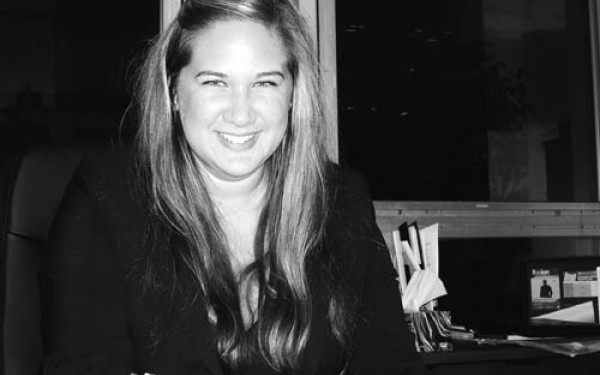After Two Months, A President
Former VP Sustainabiliy Elected as New CSU President
This year, the Concordia Student Union set a record.
Unprecedented in the university’s history, the union operated for over two months without a president.
Now, after an election at the March 13 council meeting, a new leader has been appointed. Former VP Sustainability, Andrew Roberts, will be leading the union as president until the end of their mandate.
Roberts will also maintain his Sustainability portfolio.
“I think the way that the conversation was going, it was a good thing that Andrew put his candidacy foreword,” said Nadine Atallah, current VP Clubs and Internal, whom the executive originally had unanimously endorsed following former president Shubert Laforest’s resignation.
While the new campaign for next year’s CSU is going relatively smoothly—with posters and candidates around the university spreading word on the upcoming election—the same couldn’t be said for the nomination and election of the replacement president.
Replacing Laforest proved to be anything but a simple task.
When the executives originally advocated for Nadine Atallah to take over the position, council unanimously voted down the decision.
In the beginning, Roberts expressed no interest in the job, stating that he “wasn’t a politics kind of guy.”
For the first half of the presidential discussion at last week’s council meeting, Roberts’ name was nowhere to be seen. There were to be three executives running—VP Academic and Advocacy Hajar El Jahidi, VP External Simon-Pierre Lauzon and Atallah.
El Jahidi was absent from the meeting due to illness.
Then, after the majority of the 30 minutes allotted for discussion of presidential prospects was almost completed, the three candidates running turned into four.
Roberts put his name in for the position following a heated discussion over the particular attributes of each candidate.
“I’ve been speaking with a couple of councillors, and they’re glad to see me in there and I’m just trying to alleviate some of the tension that often pops up,” said Roberts in an interview with The Link, referring to the often-tense environment surrounding recent presidential discussions.
“If you ever step into a meeting towards the end of the night you can tell that there are tempers flying a bit—between the executives, between council.
“It’s natural that relationships can get tense sometimes, but I’m just trying to smooth things over so that the next two months can go well and that the transition will go well,” he added.
Councillor and current presidential candidate, Melissa Wheeler, expressed her concerns over Robert’s original unwillingness to apply for the position, saying that the fact that he didn’t really want the position did not sit well with her.
Roberts rebutted, saying he wasn’t forced into making the decision.
“I’m feeling like I’m responding to the vibe in the room, which is more geared towards a healthy atmosphere,” he said. “If that’s what council wants, I’ll throw my name in the hat.”
What came as a surprise to many in the room was met with varying degrees of support from council. Many echoed Wheeler’s concerns, and said they were hesitant to vote in favour of a president whom they felt was being pressured into the job. While others commended his confidence and attested to the fact that he was, most likely, the best option.
Shortly after, council voted Roberts to take over the presidential mandate until June 1, when a newly elected union’s term would begin.
“The first two days I was kind of wrapping my head around it,” said Roberts. “This week I’ll hit the ground running.”
His original reluctance to run for president was influenced by the fact that three other members of the executive were also running.
“I’m confident that they could have done it—so I felt that it wouldn’t really be necessary to [run.] They’re incredibly qualified, so I didn’t see it as imperative that my name go in, although I was prepared to do it,” he said. “Then I saw that things were changing. I was bringing the cool head and a calming voice that was needed.”
After council voted in favour of his presidency, it seemed as though many steps could have been saved if Roberts had volunteered to replace Laforest immediately after his resignation, instead of over a month later.
“It’s easy to say that it would have gone a lot more quickly if he had put his name in [beforehand] but he hadn’t originally wanted to do it,” said Atallah. “The ‘could have, would have, should have’ scenario doesn’t really stand here because, like I said, he was in a very different place a month ago than he was on Wednesday, and the team was in a very different place.
There are only two months left in his mandate, but Roberts says he is looking at the situation from an administrative perspective. He wants specific projects to be completed by the time he leaves office, such as the hiring of a general manager and getting the CSU’s IT problem fixed.
“For right now, the projects I’m working on have very dedicated volunteers and I kind of communicated with them that my time will be split,” Roberts says of how he will balance presidential responsibilities with his ongoing VP sustainability projects.
“There is nothing that’s going to be pushed to the side,” he added. “I’m very adamant that those things won’t be thwarted, and I’ve communicated with people on the projects I’m working on as to how we can make that happen—and they will.”

_900_598_90.jpg)
_600_832_s.png)



__600_375_90_s_c1.jpg)
1_600_375_90_s_c1.jpg)